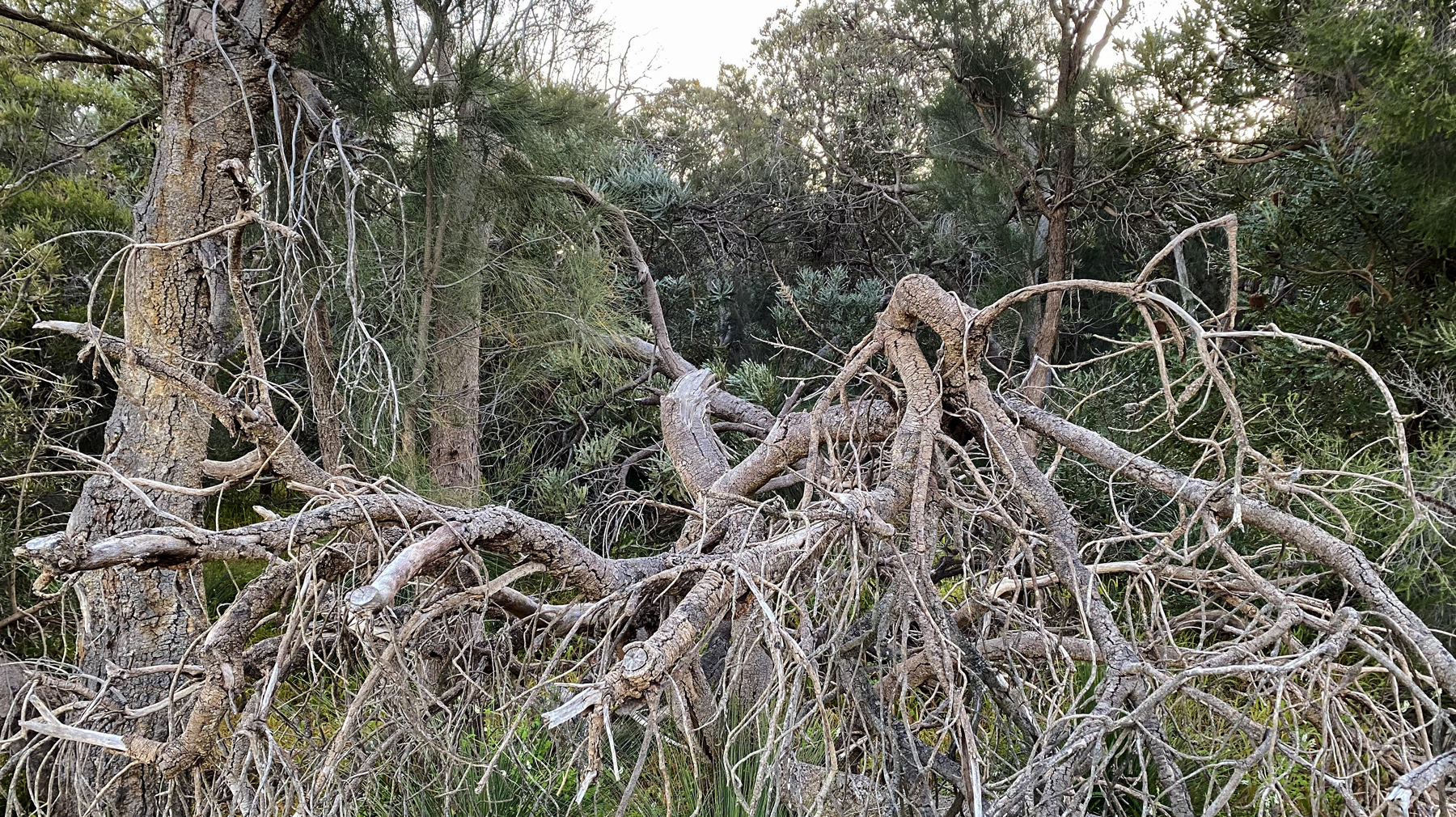
Phytophthora cinnamomi is an introduced soil-borne pathogen that causes the dieback disease associated with the death of many native plants and trees in the south-west of Western Australia. It is readily spread in infested soil, including gravel. To minimise the spread of the disease, we only use dieback-free gravel; however, dieback-free gravel is in short supply.
To address this, we have been working with the Department of Biodiversity, Conservation and Attractions, Curtin University and Culford Agri Industries to trial the eradication of dieback through the application of a soil fumigant, metham sodium.
Small-scale field trials showed that metham sodium eliminates dieback from gravel. The chemical has been registered for this purpose; however, the process needs to be scaled-up before it is commercially viable. A commercially scaled experiment using pine-wood plugs treated with dieback in a gravel stockpile, that had been treated with metham sodium during the stockpile's construction, showed Dieback survived in less than six per cent of the inoculated plugs. Modification of stockpile construction and better surface sealing have further reduced dieback survival.
A DNA-based compliance test has been developed to confirm whether gravel has been treated as required. DBCA is very supportive of this innovative dieback eradication treatment. It is anticipated the treatment will be formally recognised as a means of preventing the spread of dieback in our construction and maintenance operations.
To read about the dieback eradication projects in collaboration with the DBCA, see the Fact Sheet on our website.
